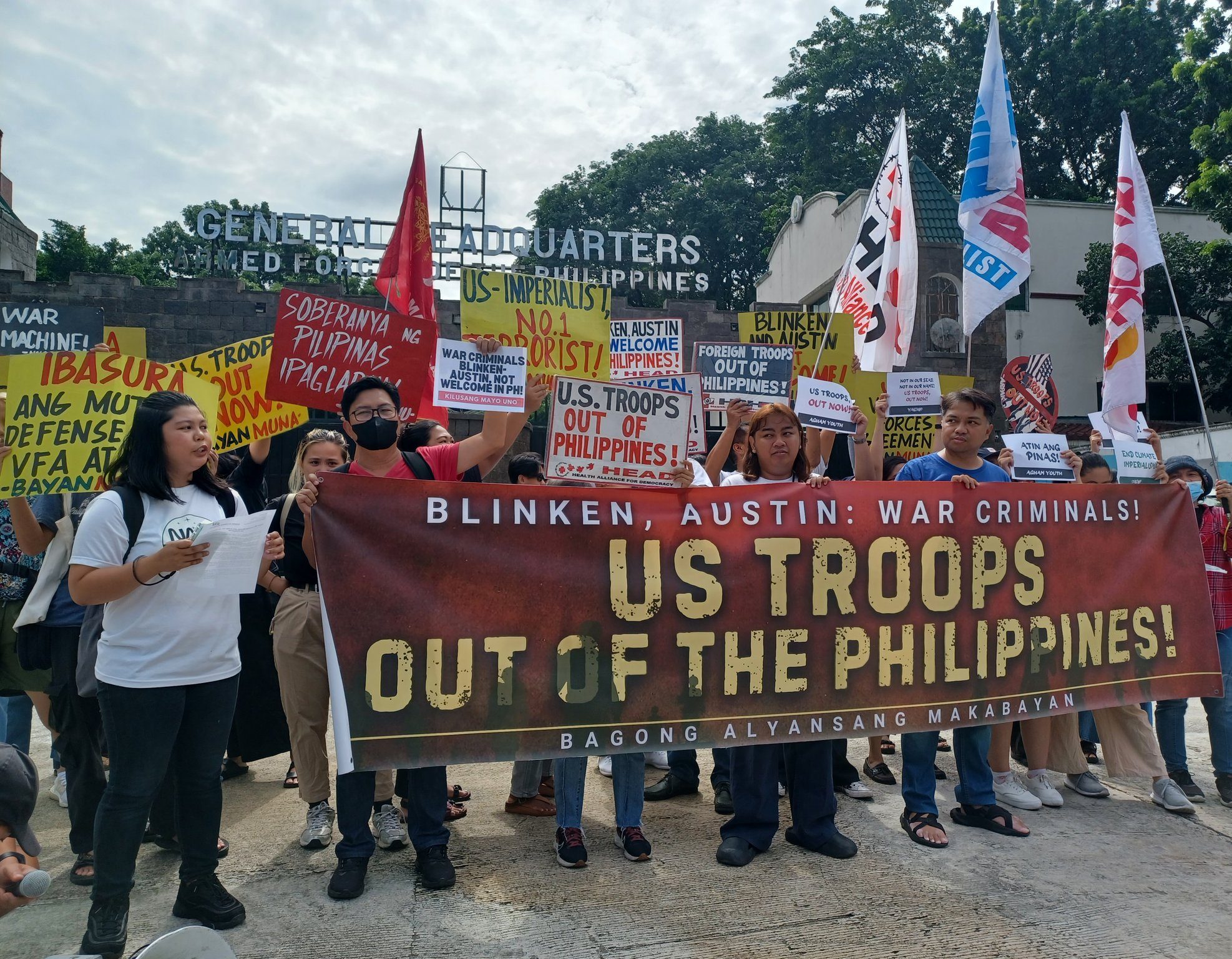The visit of US Secretary of State Antony Blinken and Defense Secretary Lloyd Austin to the Philippines was met with a strong backlash from people’s groups, including Kalikasan People’s Network for the Environment and Bagong Alyansang Makabayan (Bayan).
Both organizations voiced serious concerns about the implications of the visit on the country’s sovereignty, environment, and regional stability.
U.S. top officials Blinken and Austin are in the country for the “2+2” talks with their Philippine counterparts, Enrique Manalo and Gilberto Teodoro.
This marks the first time the Philippines has hosted the “2+2” talks. Blinken described the event as evidence of “a steady drumbeat and a very high level of engagement between our countries.”
But environmental group Kalikasan said that the visit provokes more trouble in the region instead of mitigating it. “The visit of US Secretary of State Antony Blinken and Defense Secretary Lloyd Austin signals more ecological and geopolitical turmoil in the region,” said Jonila Castro, advocacy officer for Kalikasan.
The group highlighted the threats to the West Philippine Sea’s rich marine biodiversity from ongoing military activities and the environmental degradation linked to past US military bases.
Meanwhile, multisectoral group Bayan condemned top US officials Blinken and Austin as “war criminals”, saying that they advance US military interests at the expense of the Philippines’ sovereignty and environment.
In a statement, Bayan said that the visit is aimed at expanding US military intervention and aggravating regional tensions.
“These war criminals, who are responsible for fanning proxy conflicts around the world and enabling genocide in Palestine, are here in Manila to expand US military intervention and warmongering in the country and the region,” the statement read.
Bayan criticized the Marcos Jr administration for aligning itself with US geopolitical and economic interests, pointing out that its stance only shows that it prioritizes the superpower’s agenda in the Philippines over national sovereignty.
“The Marcos Jr. government continues to promote the imperialist geopolitical agenda of the US. He has allowed the entry and meddling of foreign troops even if this is blatantly against the Constitution, added additional EDCA sites which undermine our sovereignty and disrupt local livelihoods, and echoes US war rhetoric against China,” the group said.
In a statement, research group IBON Foundation said the visits of top US officials to Asian countries, including the Philippines, are part of its strategy to ensure global dominance and hegemony rather than for defense purposes.
According to IBON, the US maintains 742 military bases in 82 different countries and territories, far surpassing any other nation’s foreign military presence.
The group noted that the US has a total of 226,762 civil-military personnel stationed in 176 countries and territories, alongside 2.6 million military personnel on domestic soil.
Bayan expressed concern over the potential for increased militarization and its impact on local communities, particularly in the context of ongoing environmental and humanitarian crises in the Philippines.
In May, approximately 690 families, or 2,765 individuals, from two villages in Penablanca town, Cagayan province, were displaced due to extensive military operations. Residents reported damage to crops after the military dropped numerous bombs and artillery shells and fired thousands of rounds at these impoverished farming communities.
“The corrupt and fascist Marcos Jr. government barters the country’s sovereignty as it satiates its greed for money and its brutal aim of silencing dissent by raining down weapons of mass destruction in rural communities,” Bayan said.



